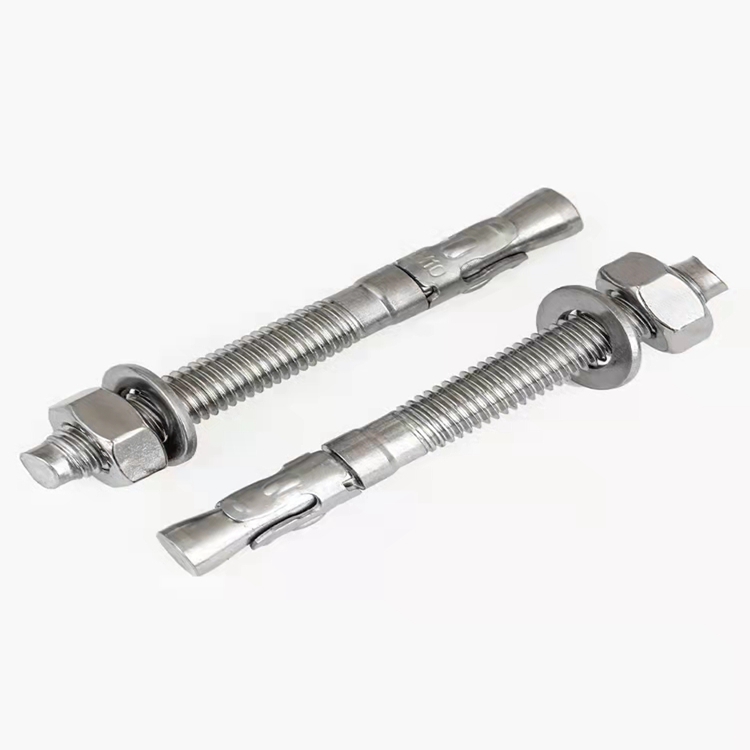Durable Plastic Fasteners for Versatile Applications and Reliable Performance
Oct . 16, 2024 14:58 Back to list
Durable Plastic Fasteners for Versatile Applications and Reliable Performance
The Versatility and Innovation of Plastic Bolts and Nuts
In recent years, the materials utilized in engineering and manufacturing have undergone a remarkable transformation. Among these innovations, plastic bolts and nuts have emerged as a viable and efficient alternative to traditional metal fasteners. With their unique properties and increasing application in various industries, plastic bolts and nuts are reshaping our understanding of fastening technology.
One of the primary advantages of plastic bolts and nuts is their lightweight nature. Unlike metal fasteners, which can add significant weight to a product or structure, plastic options are considerably lighter. This characteristic is particularly beneficial in industries such as aerospace, automotive, and consumer electronics, where weight reduction is critical for enhancing performance and fuel efficiency. For example, in the automotive industry, using plastic fasteners can lead to lighter vehicles, which consume less fuel and yield lower CO2 emissions.
Another significant benefit of plastic fasteners is their resistance to corrosion and chemical degradation. Metal fasteners can be susceptible to rust and corrosion, particularly in harsh environments or when exposed to moisture. Plastic bolts and nuts, on the other hand, retain their integrity in a wide range of environmental conditions. This makes them ideal for applications in marine environments, chemical processing plants, and outdoor installations where exposure to the elements could compromise metal fasteners.
Moreover, plastic bolts and nuts are less prone to conducting electricity. This feature can be particularly useful in electronic applications where preventing shorts and electrical failures is crucial. By using plastic fasteners, manufacturers can enhance the safety and reliability of their products, especially in sensitive electronic devices and equipment.
plastic bolts and nuts

The versatility of plastic bolts and nuts extends to their manufacturing processes as well. They can be produced using various methods, including injection molding and extrusion, allowing for a high degree of customization in terms of size, shape, and color. This adaptability makes it easier for designers and engineers to create fastening solutions that meet specific requirements. Additionally, the ability to produce complex geometries ensures that plastic fasteners can effectively compete with their metal counterparts in a variety of applications.
One common misconception about plastic fasteners is that they lack strength compared to metal options. However, advances in material science have led to the development of high-performance plastics that possess remarkable tensile strength and impact resistance. These engineered plastics, such as nylon, polypropylene, and polycarbonate, can withstand considerable stresses and loads, making them suitable for a range of demanding applications. Industries that require strong and durable fastening solutions—such as construction and manufacturing—are increasingly turning to high-performance plastic bolts and nuts to fulfill their needs.
Sustainability is another aspect driving the adoption of plastic fasteners. Many plastics used in manufacturing can be recycled, and bioplastics made from renewable resources are becoming more prevalent. This shift towards eco-friendly materials aligns with the growing emphasis on sustainability in modern manufacturing practices, allowing industries to reduce their carbon footprint and contribute positively to the environment.
In conclusion, plastic bolts and nuts represent a significant innovation in fastening technology, offering numerous benefits over traditional metal fasteners. Their lightweight nature, corrosion resistance, electrical insulation, adaptability in manufacturing, and sustainability make them an attractive choice for various industries. As technology continues to advance, it is likely that the applications and capabilities of plastic fasteners will expand, further solidifying their place in the modern engineering landscape. Whether in automotive design, consumer electronics, or industrial applications, plastic bolts and nuts are proving that they are not just alternatives but essential components for future innovations.
Latest news
-
High-Quality Panel Stud Bolt Reliable Panel Stud Bolt Factory & Suppliers
NewsJul.08,2025
-
High-Precision Fine Thread Locknuts Manufacturer & Supplier Custom Solutions
NewsJul.08,2025
-
PH Imperial Stud Bolt – High Strength Fasteners from Leading Supplier & Factory
NewsJul.07,2025
-
High-Quality Allen Wrench Bolts Leading Factory, Company & Suppliers
NewsJul.07,2025
-
Wholesale Ball Stud Bolt - High Quality Supplier & Factory Price Reliable Wholesale Ball Stud Bolt Company
NewsJul.06,2025
-
High-Strength Alloy Bolts Manufacturer & Supplier Quality Alloy Fasteners Factory
NewsJul.06,2025
